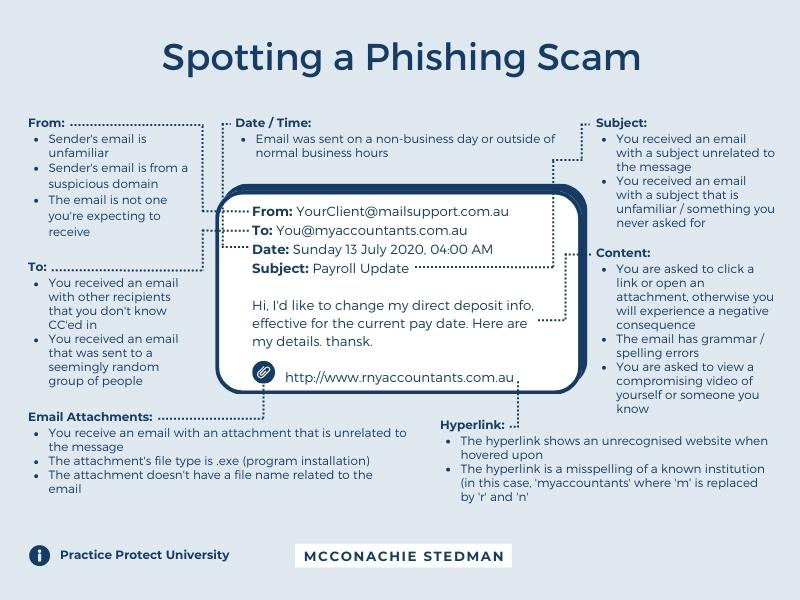Protect your bank account from scammers
According to research by the Commonwealth Bank (CBA) (September 2022), 60% of Australians reported having personally been a victim of a scam, or knew someone who had, and 57% of Australians reported becoming more concerned about scams over the last 12 months.
This is unsurprising given the constant flow of suspicious emails, texts, phone calls and more that Australians are bombarded with.
CBA’s research shows that Australians receive roughly five scam calls, emails or messages a week, equating to over 250 attempts a year.
It’s important to always be on the lookout for anything suspicious, and to make sure you’re taking steps to keep your money safe.
Here are some action steps that you can take to protect yourself today:
1. Take a moment to pause…
How legitimate does the message look and feel? If there are spelling errors in the email or the email/web address looks strange, it’s best to ignore.
You can always contact the business directly to ask if the contact is legitimate.
2. Password123
Passwords for all online accounts should be strong and unique. It’s also best to avoid using the same password for multiple accounts.
3. Keeping safe online
- Ensure you have up to date anti-virus software on devices used to access banking.
- Do not store banking information on your computer.
- Use a secure browser when logging into online banking.
-
Avoid using public Wi-Fi to log into online banking.
4. Multi-Factor Authentication
Multi-Factor Authentication requires a second verification process to be able to access an account. This is often an SMS/email code or through the use of an authenticator app.
Enabling this provides an extra hurdle for anyone trying to access your accounts.
5. Regular monitoring
It’s important to make sure you’re regularly checking your accounts and bank statements for any scam activity. If you see something suspicious, contact your bank straight away!
If you’ve been scammed, or believe you might be at risk of being scammed, it’s important to take immediate action:
- Contact your bank and financial institutions immediately to report the suspected scam and seek their advice on what to do next.
- If you think your online password has been compromised, take steps to secure your accounts by changing your password.
- Report the scam to the ACCC via their “Report a Scam” webpage.
You can also check out ScamWatch for more information on scams and where you can go for further help. https://www.scamwatch.gov.au/get-help/where-to-get-help

Source: Practice Protect University

